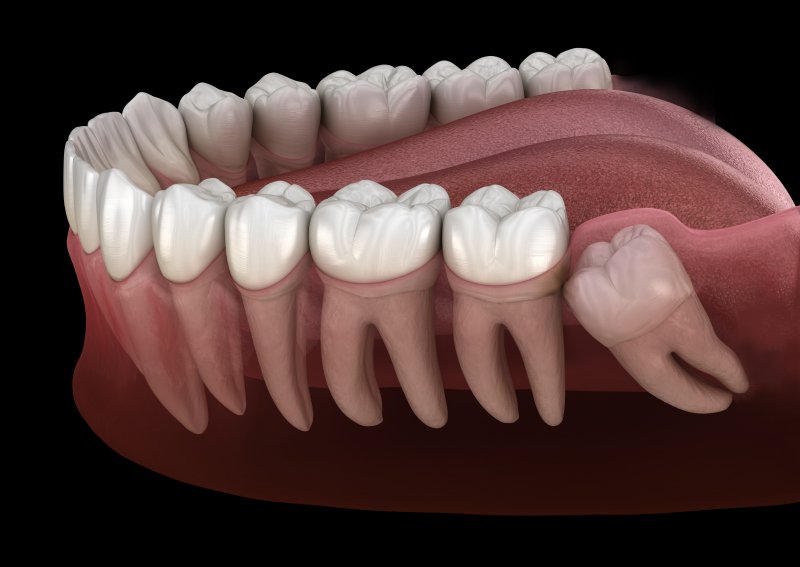
Having your wisdom teeth removed can feel like a right of passage for a lot of people. However, they can also occasionally feel like an unwanted house guest, like you have to put in a lot of careful effort to extract them as painlessly as possible.
Most people start to see their wisdom teeth sprout somewhere between the ages of 17 and 25, so if you’re reaching the upper end of that limit without needing a wisdom tooth extracted, you might wonder if you’ve dodged a bullet. If you’re curious, here’s more information about whether that could be the case.
Does Everyone Get Wisdom Teeth?
While it’s more common than not to have all four wisdom teeth, it’s certainly not unusual to lack some of them. According to the Dental Research Journal, anywhere between 5 and 37 percent of people are missing at least one of their wisdom teeth.
While it’s unclear why this is the case, the leading theory is that it’s largely genetic. If your parents were missing some of their wisdom teeth, that’s a good sign that you could be lacking one of yours.
It’s worth keeping in mind, however, that not being able to see your tooth above the surface doesn’t mean you don’t have one. Wisdom teeth can often become impacted, which results in them not being able to sprout. However, impacted teeth can still cause problems, so you should talk to a dentist about getting an x-ray to ensure that your wisdom teeth aren’t lurking beneath the surface.
Does Every Wisdom Tooth Need to Be Removed?
Even if you do have all of your wisdom teeth, that doesn’t necessarily mean that you’ll need to have them removed. Some people are fortunate enough that their final molars sprout in a healthy way that doesn’t disrupt other teeth. In these cases, your dentist may not even bother with an extraction.
What Are Signs a Wisdom Tooth Needs Extraction?
If you’re wondering whether your wisdom teeth need to be extracted, here are some signs that they might:
- Pain or discomfort
- Swelling, redness, and persistent pain that could indicate an impacted tooth
- Tenderness, bad breath, dental abscesses, or other signs of infection
- Shifting, misaligned teeth
- Cavities or tooth decay due to the natural difficulty in cleaning wisdom teeth
About Our Practice
At Hiner Family Dentistry, there’s nothing that means more to us than being able to help our patients get the oral healthcare that they deserve. Dr. Reagan Hiner and Dr. Matthew Hiner are a team of husband-and-wife dentists who are both deeply committed to providing both incredible dental care and personalized service. We’re a family practice in more ways than one, and we’d love to show you how that distinguishes us from other dentists.
If you have any questions about wisdom teeth, we can be reached at our website or by phone at (713) 589-5539.
